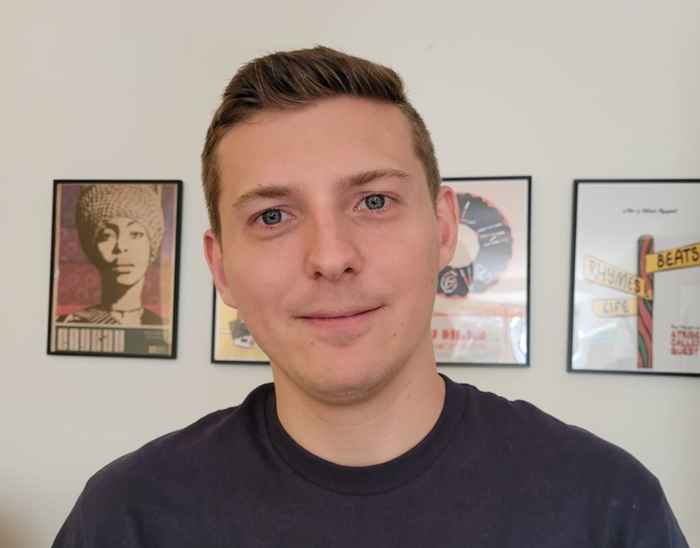‘As a first-generation student, you can easily feel inferior’
FMG lecturer Milio van de Kamp is fighting inequality
30 May 2022

If anyone knows how hard it can be for first-generation students to manage at a university, it is Milio van Kamp. He wasn't just the first in his family to get further than secondary school. He was also born into a poor family who lived in a house without gas and electricity. His school career was quite bumpy. He basically went through all the various levels of the school system before ultimately ending up at university − a place where he felt like he didn't belong for quite some time. Now that he is a lecturer, he wants to help improve the situation for the current group of first-generation students.
What if you were calling all the shots? What would you do to reduce inequality?
‘I would completely overhaul the education system. Apart from CITO test scores, parents’ education level is currently also taken into account in recommendations regarding the choice of secondary school. That shouldn't be the case. I would do away with the whole system of splitting pupils up into different education levels and require teachers to have more skills in the area of culture and class so they can connect well with each pupil. And at university, I would ensure the staff is more diverse. There are a lot of good intentions to that end, but not enough is changing yet. Too many staff have temporary contracts (myself included), which hamper actual progress when it comes to structural reform.’
Can you explain why it is harder for a first-generation student to cope?
‘Based on the research and my own experiences, I'd say it's got everything to do with cultural capital. You have a different way of talking and thinking, you come from a totally different environment and you've read different books. That makes it difficult to connect with a lot of your fellow students and lecturers, who frequently come from well-established middle-class backgrounds. You can easily feel like an outsider, or inferior, because you differ from the norm. That interferes with the learning process, and it's such a shame.’
How are you trying to change that?
‘For one thing, we've started the Baanbrekers project, in which we give first-generation students an extra soft landing and actively promote talent development. They have their own group in which they can get to know one another and exchange their experiences on their background. It gives them such a feeling of recognition and self-confidence, the realisation that “there are other people just like me”.’
Your students praise you for your ability to create a 'safe environment'. How would you define that?
‘When I'm about to cover a sensitive subject such as racism or sexism, I first lay down the rules with the group – that there is absolutely no place for exclusion. Of course I encourage questions, but I do want students to think about the way in which they ask them – not disparagingly, but in an open and respectful manner. Students really appreciate that. I also like to divide my group up into smaller ones so that the less vocal students aren't so afraid to participate in discussions – since it's easier to speak your mind in a small group than to a big crowd.’
You are a role model for first-generation students. Did you also have a lecturer who fulfilled that role for you?
‘Definitely, for me, it was Anouk Kootstra (known for her essay ‘Een jas die past’ about the role of class in our society, ed.). I was studying Interdisciplinary Social Science and I had written a blog on the subject “Waarom pas ik hier niet?”, which translates as “Why don't I fit in here?”. Anouk came over to me to tell me she had read my piece and that it was really relatable for her – it turns out, she was a first-generation student, too. That's when I first started to believe I actually could finish the programme; that it was actually possible for people like me.’